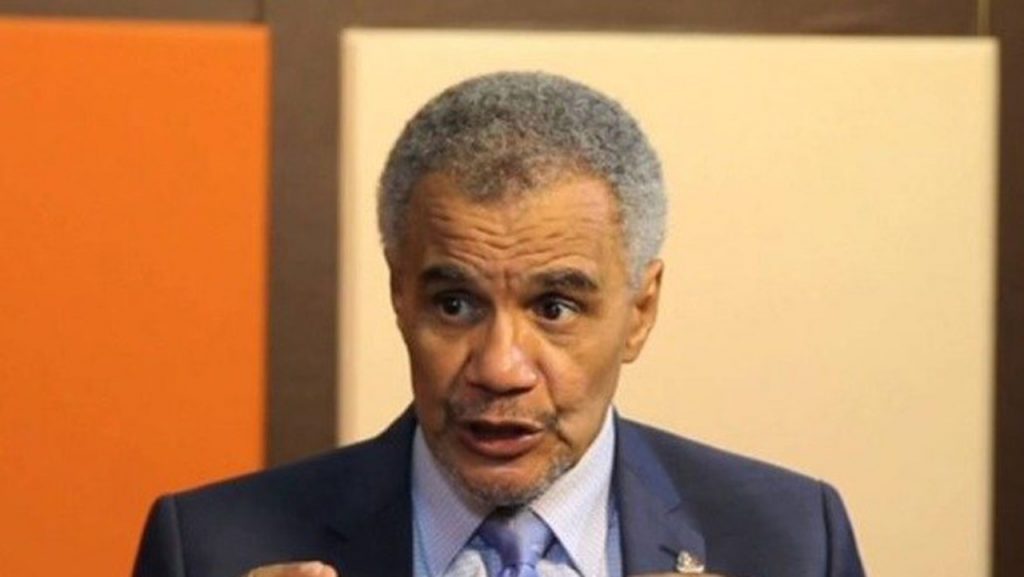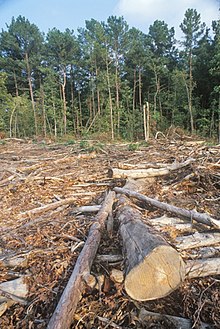Environmentalists have called on the Federal Government of Nigeria to rise up to its responsibility of tackling environmental challenges in the country in order to leave a sustainable environment for future generations to inherit.
The Environmentalists made this submission while commenting on the haphazard approach of the government to the worsening impact of climate change on the people in 2019.
Nigerian environment is still faced with the debacle of oil spills in the Niger/Delta, unending desertification, losses of natural habitat and flooding.
In addition, the menaces of plastic and air pollutions, blockage of drainages, illegal tree felling, beach/gully erosion, droughts, loss of biodiversity and illegal wildlife trade and food shortages, escalate environmental problems in urban and rural areas.
Nigerians were warned of impending floods, but neither the government nor the people did something substantial to mitigate the impacts.
Unfortunately, floods displaced hundreds of Nigerians and climate change effects worsen. There were weeks of pounding rains last year, which swamped major cities, leaving homes and facilities isolated by floodwater. As the floods stay weeks even months to recede, some buildings become weakened and exposed to the weather.
According to the United Nations Office for the Coordination of Humanitarian Affairs (OCHA), there were reports of such instances in Lagos, Abuja, Ondo, and Kogi.
Arising from high-water levels in rivers Niger and Benue and heavy rainfall, Cross River, Kogi, Niger, and the Taraba States also experienced flooding.
The floods were widespread with the worst impact on some specific states within the six geo-political zones in Nigeria; North West (five states), North Central (seven states), North East (five states), South East (five states), South-South (five states) in South West (four states) totaling 32 states severely affected out of 36 states of Nigeria and FCT.
Within the year, Nigeria experienced a high level of climate-induced hotness of weather, refugees, and migrations. Many were internally displaced while others seeking to escape the clutches of the disaster, lost their lives in the Sahara Desert or in the Mediterranean Sea.
Based on the flood reports, North-East Nigeria (Adamawa, Borno, and Yobe) have had a total of 21,056 households (HH) residing in IDPs camps and host communities affected by the floods; Adamawa (5,454 HH), Borno (10,757 HH) and Yobe (4,845 HH). There have been joint area-based needs assessments and emergency response actions, with support provided by various aid agencies to 2,360 HHs.
Environmentalists also observed the shrinkage of Lake Chad and the attendant reduction from a size of over 25,000 square kilometres in the 1960s, to a measure of 2,500 square kilometres today.
70 to 80 per cent of Nigerian original forests have disappeared through logging, agriculture, city and road expansion as well as building of industry. This has led to the loss of plants and animals which depend on these forests. With the expected consequences of climate change, these losses are expected to increase what caught the attention of the world towards the end of 2019 were the discussions and efforts to resolve a split between rich and poor nations over climate funding and cooperation rules through the UN COP 25 climate conference talks which deadlocked in Madrid. Many delegates said they were “disappointed” by weak commitments to climate protection globally.
In the course of the year, Nigeria undertook a second issuance; a Series II Green Bond of up to N15 billion following the successful debut of green bond issuance of N10.69 billion in December 2017 – by which Nigeria became the first African country to issue a green bond.
The Nigerian Debt Management Office noted that the Series II Green Bond issuance is a further demonstration of the government’s commitment to the reduction of greenhouse gas emissions by 20 per cent by 2030, as outlined under the Paris Agreement signed on September 21, 2016.
Experts laud the initiative saying that the distinct characteristic of a green bond is that the proceeds are used exclusively to finance or refinance environment-friendly projects, such as clean water, renewable and sustainable energy clean transportation, climate change adaptation, sustainable waste management, sustainable land use, and biodiversity conservation.
An environmental expert, Dr. Ahovi Michael lamented that the flooding of the nation in 2019, which was attributed to climate change, was true in parts, but not fully true.
“The other wing is human shortcomings as Africans. It is because the nation has not to plan properly. We talk about climate change due to the heavy amount of rains that fall throughout 2019 and our dams were also filled and we had overflowed. That is the reason for the disaster that took place. But there is one human aspect that we failed, that is not planning to release water gradually. People in government have not been listening to forecast especially, by Nigerian Meteorological Agency (NIMET). We learn to release the water in dams, in Cameroun and Nigeria. We shouldn’t wait for the dams to be endangered before releasing water in order not to release disaster”
According to him, the communities were faced with the twin devils of saturated natural rains and floods from water released by dams.
“It’s not because of rainfalls or climate change but government has not done adequate intelligent work. We should systemically shield water from the dams and not wait until its overflowed and flood adjoining states. Plastic pollution is still a recurring factor in the country. The plastic we are generating is still heavy and the danger is there even as people are dying silently because we are injecting plastic heavily. Those in riverine areas have been swallowing a lot of micro-plastic and so much of the plastics are on the waterways and fishes are consuming them. Yet nothing serious is done concerning it”.
He said the government should develop a plan of action toward eliminating plastics; by telling organizations that produce plastics to switch their business to others.
“Put machinery in place for enough recycling of plastics. There has to be a concrete plan of facing out the plastic. Air and noise pollution are still strong. Air pollution is strong in Lagos, Kaduna and other heavily populated states. Most of our vehicles produce heavy carbon dioxide and menthe into the atmosphere. More used vehicles are on our roads and 95percent of vehicles don’t have emission sensors that could help to regulate amounts of carbon dioxide coming out from the pipe”.
Dr. Michael said oil spillage is still a challenging problem and from experience, less of the factor blame should be passed on the companies in the oil communities.
“The communities are a challenge to the pipes and some of them that are employed to monitor the pipes don’t report when they are destroyed. When there is sabotage, most of the companies are not aware of time. Sometimes, the organizations turn a blind eye to the spillage because they get frustrated in paying people compensations. The government should have a plan, pick up one or two aspect of the environment, draw out a working plan and ensure that the plan is work upon for solution.”
He said, “Issue of air pollution could be picked, ensure that vehicles are taxed for polluting the environment, you would find out people would seat up and ensure that vehicles on roads are properly serviced to prevent fumes emissions. I expect the government to be practical on climate change. Educate Nigerians to stop what they are doing that encourages climate change. Messages in the form of, “Don’t cut your tress; they are like your lungs. If you drink in bottles, it tastes better.
If we don’t stop actions that work against nature, the world is heading to disaster. People who mess up this world are not likely to be around when the mess up would take place. In the next 50 to 70 years, we will begin to see serious disasters. In the 80/90’s when you read books on the environment, what you see was that animals are been extinct but today, its humanitarian crisis and human beings are challenged by climate change.”
“The amount of greenhouse gases release already into the atmosphere, the effect would come in 30 or 40 years. People could be taxed for polluting the environment. We have an emergency challenge now, people shouldn’t put the economy first before the health.”
Limiting global warming to 1.5 degrees Celsius required a drop in emissions of over 7per cent yearly, to 2030 but this still remains a long way to go amid huge emissions in the country.
Lagos-based environment activist and founder, LUFASI Park, Desmond Majekodunmi who expressed dismay that Nigeria didn’t do enough to guarantee a sustainable environment for the future in the outgone year called for immediate action to restore the environment.

“We need to place our assessment against that paradigm that the environment is humans’ life support and it is being seriously threatened. Has Nigeria done enough, no at all. Have we made progress, fantastic progress at least from pronouncement? Our president has made pronouncements about tree planting to plant 25 million trees, which is wonderful and has set up the inter-ministerial committee to that effect. Which is also encouraging, tresses are part of the major solution to solving the problem.”
He lamented that “All that is going on with the Niger/Delta Development Commission and the lack of progress for cleaning up Niger/Delta is extremely disappointing. There is a health emergency going on there and we have known about it for years. Government said they are going to do something but for the last two to three years now, it hasn’t been done. Every child that dies as a result of contamination and poison, that child’s death is on the head of those who haven’t do what suppose to be done.
“Niger/Delta has to be clean up immediately, gas flaring has to be stopped very soon. Whatever it takes, the cleanup must happen. We have the capacity to do that. State of emergency is needed on tree planting.
If China can dedicate over 400,000 soldiers just for tree planting, we can do something similar starting now because the house is on fire. We must recognise also that we can no longer be burning oil because burning it, is cruel for future generations.”
Majekodunmi said protecting the environment is a primary duty for everyone because it’s the human entire life support system stressing that the environment is being damaged to a ‘point of irreparable chaos’ if current negative habits toward the environment continue.
Similarly, the Director, Technical Programmes, Nigerian Conservation Foundation, (NCF), Dr Joseph Onoja, Reiterated that the talk about 25 million trees planting in Nigeria might be a mirage if measures are not put in place to nurture the tree into maturity when planted.
He said, “The government needs to put policies in place that would ensure that trees are planted and criminalise indiscriminate tree clearing. We might continue to have a high heat index in Nigeria if we don’t see that as an emergency.”

Leave a Reply
You must be logged in to post a comment.